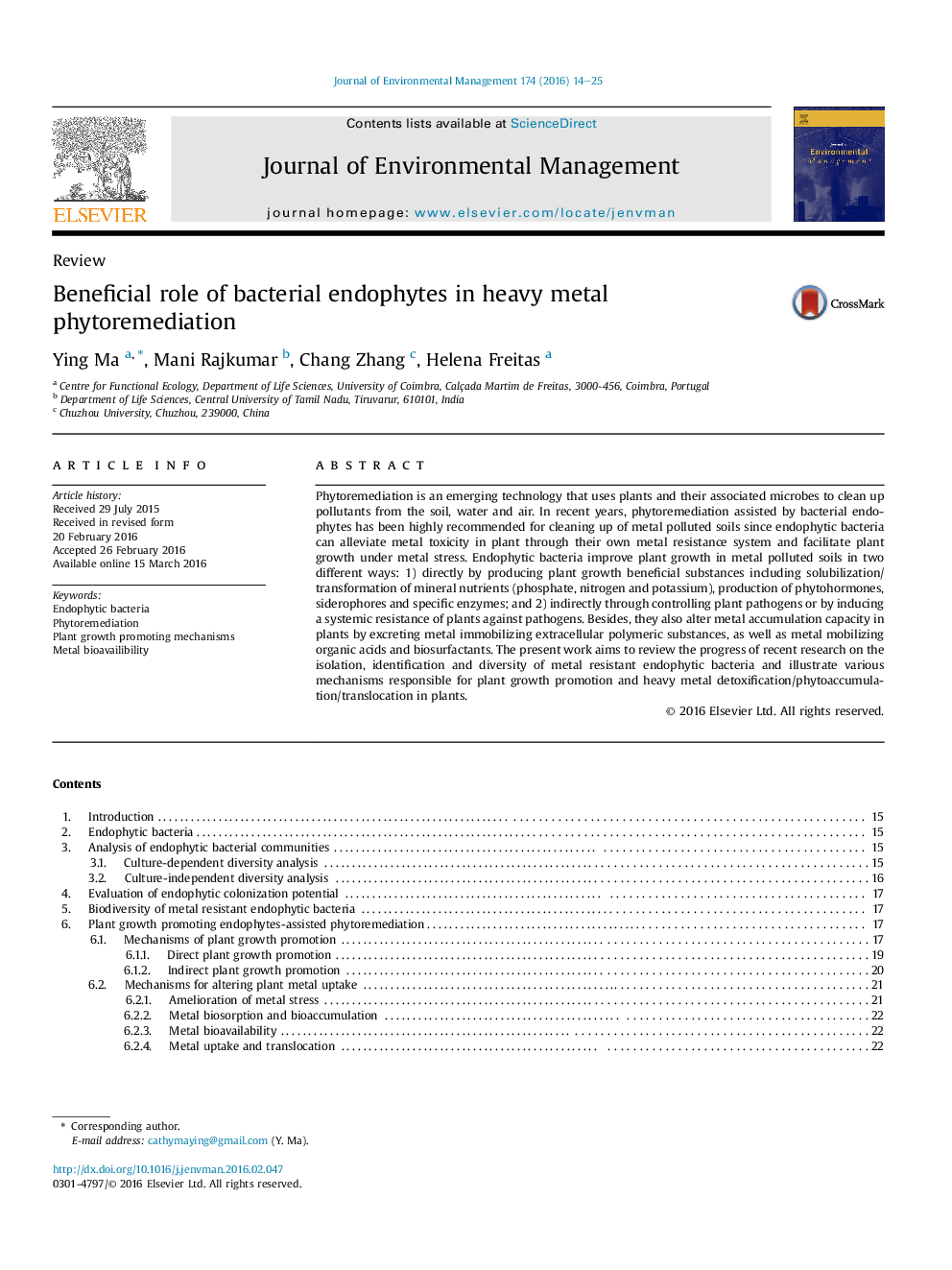| Article ID | Journal | Published Year | Pages | File Type |
|---|---|---|---|---|
| 1055388 | Journal of Environmental Management | 2016 | 12 Pages |
•We review the literature on the role of endophytes in heavy metal phytoremediation.•Endophytic bacteria help plants to adapt to biotic and abiotic stress conditions.•Endophytes enhance phytoremediation by stimulating plant growth and metal uptake.•Manipulation of plant-endophyte interactions improves phytoremediation potential.
Phytoremediation is an emerging technology that uses plants and their associated microbes to clean up pollutants from the soil, water and air. In recent years, phytoremediation assisted by bacterial endophytes has been highly recommended for cleaning up of metal polluted soils since endophytic bacteria can alleviate metal toxicity in plant through their own metal resistance system and facilitate plant growth under metal stress. Endophytic bacteria improve plant growth in metal polluted soils in two different ways: 1) directly by producing plant growth beneficial substances including solubilization/transformation of mineral nutrients (phosphate, nitrogen and potassium), production of phytohormones, siderophores and specific enzymes; and 2) indirectly through controlling plant pathogens or by inducing a systemic resistance of plants against pathogens. Besides, they also alter metal accumulation capacity in plants by excreting metal immobilizing extracellular polymeric substances, as well as metal mobilizing organic acids and biosurfactants. The present work aims to review the progress of recent research on the isolation, identification and diversity of metal resistant endophytic bacteria and illustrate various mechanisms responsible for plant growth promotion and heavy metal detoxification/phytoaccumulation/translocation in plants.
